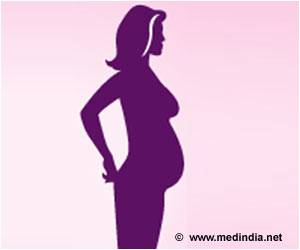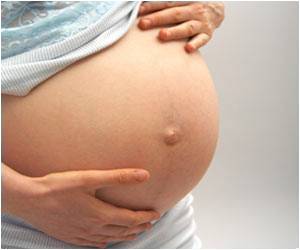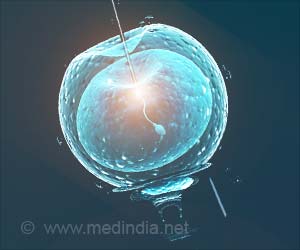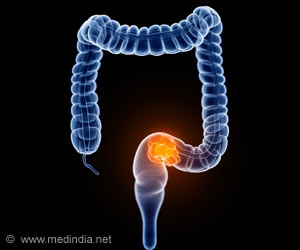A study on peripartum cardiomyopathy reveals risks of recurrence and long-term outcomes, emphasizing the importance of close monitoring and early intervention.
- Individuals with persistent LV dysfunction in peripartum cardiomyopathy (PPCM) experienced significantly worse maternal outcomes compared to those with restored LV function
- Recurrent PPCM remained a concern for up to 8 years of follow-up, and mortality rates remained high in both groups
- The study highlights the need for long-term follow-up and early initiation of guideline-directed medical therapy for women with PPCM
Long-Term Follow-Up Essential for Women with Peripartum Cardiomyopathy
According to Kalgi Modi, M.D., Louisiana State University Health, Shreveport, Louisiana, "Women with PPCM need long-term follow-up by cardiology, as mortality does not abate over time." She stated that women with a history of PPCM require "multidisciplinary and shared decision-making for family planning because normalization of left ventricular function after the index pregnancy does not guarantee a favorable outcome in subsequent pregnancies."Modi is the study's senior author, and it was published online on June 26 in the Journal of the American College of Cardiology (1✔ ✔Trusted Source
Long-Term Outcomes of Women With Peripartum Cardiomyopathy Having Subsequent Pregnancies
Go to source).
Important Considerations for Women with Peripartum Cardiomyopathy Contemplating Future Pregnancy
The latest findings are crucial for women with a history of PPCM who are "contemplating future pregnancy," according to Afshan Hameed, MD, a maternal-fetal medicine specialist and cardiologist at the University of California, Irvine.According to the researchers, "complete recovery of cardiac function after PPCM does not guarantee a favorable outcome in a future pregnancy," Hameed, who was not involved in the current study, agreed. Future pregnancies must thus "be highly discouraged or considered with caution, even in patients who have recovered their cardiac function."
Peripartum Cardiomyopathy: Diagnosis, Long-Term Outcomes, and Predictors of Recovery
The researchers evaluated 45 individuals with PPCM who had at least one more pregnancy, the first a median of 28 months later, to investigate the influence of PPCM on risk in subsequent pregnancies. They were tracked for an average of 8 years and had a mean age of 27.Peripartum cardiomyopathy was detected postpartum in 93.3% of cases and antepartum in 6.7% (mean time of diagnosis, 6 weeks postpartum). The mean LVEF decreased from 45.1% to 41.2% (P =.009) in subsequent pregnancies. The "recovery group" consisted of 30 women who had LVEF recovered to 50% or greater after the index pregnancy, while the "nonrecovery group" consisted of the remaining 15 women who had persistent LV dysfunction (LVEF 50% or below).
After adjusting for hypertension, diabetes, and a history of preeclampsia, recovery of LVEF was linked with a lower probability of persistent LV dysfunction at a hazard ratio (HR) of 0.08 (95% CI, 0.01 - 0.64, P =.02). However, the risk increased dramatically in conjunction with illegal drug use, with an HR of 9.08 (95% CI, 1.38 - 59.8, P =.02).
At 5 years, the nonrecovery group had significantly higher rates of poor maternal outcomes (a composite endpoint that comprised recurrent PPCM, HF, cardiogenic shock, thromboembolic events, and mortality) than the recovery group. At a median of 8 years, all-cause mortality was no longer statistically different between the two groups, and the difference in overall unfavorable maternal outcomes had shifted from significant to nonsignificant.
Complex Nature of Recovery in Peripartum Cardiomyopathy
According to the paper, the study is hampered by its retrospective character, a relatively small sample, and a lack of racial diversity.Indeed, the majority of the study's subjects were Black, and previous research has shown a "different phenotypic presentation and outcome in African-American women with PPCM compared to non-African-American women," according to an accompanying editorial.
As a result, the relevance of its findings to other populations "needs to be examined by urgently needed national prospective registries with long-term follow-up," writes Uri Elkayam, MD, of the University of Southern California's Keck School of Medicine in Los Angeles.
Furthermore, the report raises the question of "whether the reverse remodeling and improvement of [LVEF] in women with PPCM represent a true recovery."Previous research "found an impaired contractile reserve, abnormal myocardial strain, reduced exercise capacity, and even mortality in women with PPCM after RLV," Elkayam writes.
As with other types of dilated cardiomyopathy, normalization of LVEF "does not represent a true recovery but a new steady state with subclinical myocardial dysfunction that is prone to the development of recurrent [LV dysfunction] and clinical deterioration in response to various triggers such as long-standing hypertension, obesity, diabetes, illicit drug use," and, "more importantly," subsequent pregnancies.
The study emphasizes "the need for close long-term follow-up of women with PPCM" and gives "a rationale for early initiation of guideline-directed medical therapy after the diagnosis of PPCM and possible continuation even after improvement of LVEF."
Reference:
- Long-Term Outcomes of Women With Peripartum Cardiomyopathy Having Subsequent Pregnancies - (https://pubmed.ncbi.nlm.nih.gov/37380299/)














